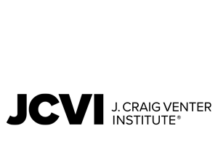The following essay is authored by Angela Mae Kupenda, a professor of law at the Mississippi College School of Law in Jackson. She is a summa cum laude graduate of Jackson State University in Mississippi and holds a master’s degree from The Wharton School at the University of Pennsylvania. Professor Kupenda finished first in her class at the Mississippi College School of Law.
When I was a girl we lived in difficult economic circumstances as my mother raised us mostly as a single parent. Our furnishings were rough, with the worn fabric or torn vinyl covered with sheets or old bed spreads. The frail legs of our sofa and chairs were broken from constant use by six children. The sofa and chairs were propped up, though, on various items, including propped up with our steady, thick, encyclopedia volumes. When my mother and father separated, she had insisted that we get the set of barely paid for encyclopedias to help with our school work, as she destined for us all to go to college.
During our pre-college years, Blacks were not routinely welcomed into public libraries. Thus when one of us had a research assignment (this was way before the days of computers and the internet), my mother would instruct that anyone sitting on the sofa or an easy chair had to immediately get up for a while. Then we children would crawl on the floor looking under the sofa and chairs in search of the right volume of the encyclopedia. After it was located, we then had to re-shift the books to prop the sofa or chair back up as someone used the volume to work on their school assignment, and someone else went back to resting on the sofa watching TV.
You see our daily life, even our lounging on the sofa, was propped up by the dream of higher education. Keeping those encyclopedias was more important than keeping other material items. Moreover, even when we were at rest, we were propped up by the higher learning to come to hopefully improve our own lives and the lives of others.
With so much happening today, the intellect and creativity of Black folks is sorely needed. To help, we must return to the basics, to the dreams of the slaves to acquire knowledge as a path to freedom, and to our basic dream about achieving higher education to improve our lives and those of others in our communities and the world.
Just as in our worn living room in the 1970s in Mississippi, a higher education can still help prop up the futures of even the poorest among us today.









Well stated, Dr. Kupenda. And again, Thank You for all your efforts at MCSOL. When I was but a [lowly] 2L at MC Law, I always looked forward to, and thoroughly enjoyed, your class. To this day (last week, in fact), I still reference the Horn Book that I “won” during your very first lecture! (To be honest, I was rather proud of that!) Glad to see that you are doing well! Thanks once again, ~Dave Brown